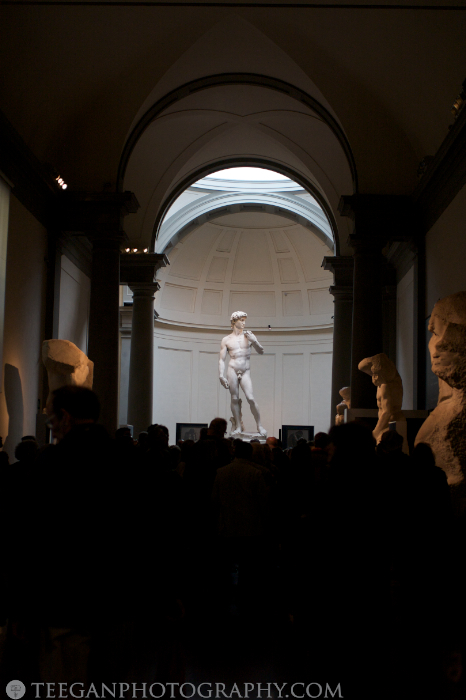Matthew 7:28-8:1
28 And when Jesus finished these sayings, the crowds were astonished at his teaching, 29 for he was teaching them as one who had authority, and not as their scribes. 1 When he came down from the mountain, great crowds followed him.
Reactions to sermons can be fascinating things. In Luke 4, the crowd responds to Jesus’ sermon in the synagogue by trying to throw him off a cliff. In Acts 7, Stephen’s sermon leads to his immediate execution at the hands of an angry mob. In Acts 20, we find that a young man named Eutychus responded to a long sermon by Paul in Troas by falling out of an upper story window to his death. It is reported that Jonathan Edwards’ sermon, “Sinners in the Hands of an Angry God,” caused people to weep, faint, and white-knuckle their pews.
Some reactions to sermons are humorous. On January 11, 1629, Fray Hortensio Paravicino de Arteage preached a sermon that so irritated the playwright Calderon that he promptly wrote some extra lines for the character of the Fool in his play, “The Constant Prince,” in which the Fool speaks of a sermon he heard that was “a sermon full of nonsense” and names the preacher by name.[1] Personally, I once preached a sermon in which a lady, at the back door of the church, said, as she was leaving, “Frankly, my dear…” leaving me to fill in the rest of the sermon.
Yes, reactions to sermons can be fascinating things. That was certainly the case with the crowd’s reaction to the Sermon on the Mount. The reaction reveals much about both Jesus and His hearers.
I. The Message of Christ is Astonishing (v.28)
The most obvious reaction was one of astonishment.
28 And when Jesus finished these sayings, the crowds were astonished at his teaching.
Indeed, there is something astonishing about the first words of verse 28, though this particular facet is only evident to those of us who read the gospel and was not evident to Jesus’ first hearers. “And when Jesus finished” is a formula that is used five times in the gospel of Matthew. It is always used at the end of a major discourse from Jesus. The five usages of this formula to these discourses can be found:
- at the conclusion of His Sermon on the Mount in Matthew 7:28,
- at the conclusion of His missionary sermon in Matthew 11:1,
- at the conclusion of His parables on the Kingdom in Matthew 13:53,
- at the conclusion of His “community discipline discourse” in Matthew 19:1,
- and at the conclusion of His prophetic message in Matthew 26:1.
Many New Testament scholars believe that the five-fold use of this formula is intentionally mirroring the use of the same formula that is used to describe the conclusion of Moses’ discourses in Deuteronomy. Indeed, the structuring of Matthew around five major discourses may be alluding to the Pentateuch itself, the first five books of the Old Testament. New Testament scholar Craig Evans believes this is deliberate and that this “provides conclusive evidence that [Matthew] has indeed arranged Jesus’ teaching into five major blocks of material, probably as part of a Moses typology.”[2]
So there is something astonishing about the way Matthew has framed the conclusion of the sermon. However, more importantly, the sermon was immediately astonishing to those who first heard it. A.T. Robertson said that the Greek word translated “astonished” here literally means “were struck out of themselves.”[3]
In a moment we will consider why they were astonished, but the reaction itself is what we first notice. The message of Christ is inherently flabbergasting, amazing, astonishing. It struck His first century hearers that way, and it strikes us that way as well. In fact, whenever Jesus preached His message tended to drive people either to outrage or overwhelming joy. Such is the incendiary message of the Son of God that nobody could be indifferent to it.
Of course, many of us have become indifferent to it because we have heard it so often. Familiarity breeds contempt. But this is a not a compliment to us. It is a sad commentary on the human capacity to domesticate even the most earth-shaking truths that so many of us have lost our sense of astonishment at hearing the gospel of Christ.
Consider: were it not for Christ Jesus, we would be heading for an eternity of separation from God in Hell. When is the last time somebody asked you, “How are you today?” and you responded, “I’m fantastic. I could be in Hell right now!” Or when is the last time you were tempted to complain, but, instead, said, “As bad as this is, it’s better than Hell!”
I am not trying to joke. On the contrary, there is a serious bottom line reality that should compel us to daily astonishment: we were lost and bound for hell and now we are not…all because of Jesus. It is intriguing to note how often those who beheld Jesus felt a sense of awe at Him.
Matthew 27:54
When the centurion and those who were with him, keeping watch over Jesus, saw the earthquake and what took place, they were filled with awe and said, “Truly this was the Son of God!”
Luke 5:26
And amazement seized them all, and they glorified God and were filled with awe, saying, “We have seen extraordinary things today.”
Acts 2:43
And awe came upon every soul, and many wonders and signs were being done through the apostles.
Hebrews 12:28
Therefore let us be grateful for receiving a kingdom that cannot be shaken, and thus let us offer to God acceptable worship, with reverence and awe
Yes, the people who beheld Jesus, and the early church in general, were bathed in awe, amazement, and astonishment. How about you?
II. The Message of Christ is Uniquely Authoritative (v.29)
The primary reason for their amazement was the nature of Jesus’ teachings.
29 for he was teaching them as one who had authority, and not as their scribes.
There was something different and unique about the way this Jesus taught. To understand why, we need to understand the nature of the preaching that first century people were accustomed to hearing. New Testament scholar Charles Quarles explains:
First-century Jewish teachers appealed to the authority of their rabbinic predecessors in their teaching. The Jerusalem Talmud notes that Rabbi Hillel lectured on a controversial topic all day but that his followers did not accept his teaching until he cited the authority of his predecessors Shemaiah and Abtalion.[4]
R. Kent Hughes gives further helpful examples.
Their teachers, mostly Pharisees, were in bondage to quotation marks – they loved to quote authorities. For example, R. Elieser affirmed in the Talmud: “Nor have I ever in my life said a thing which I did not hear from my teachers.” The same was said of R. Johanan B. Zakkai: “He never in his life said anything which he had not heard from his teachers.” Thus their teaching was a chain of references: “R. Hillel says…but also R. Isaac says…” It was secondhand theology – labyrinthine, petty, legalistic, joyless, boring, and weightless.[5]
This is significant, this reliance upon earlier tradition for the establishment of present day authority. What it means is that none of the preachers that first century Jews would have listened to would have dared attempt to ground the authority of their message in their own persons. The authority of their messages hinged on the past tense. The authority of their message hinged on their ability to say, “You should believe this because I am speaking in agreement with the earlier rabbis.” Never would they have said, “You should believe this because I am speaking.”
But that is precisely what Jesus did say. He spoke consistently and confidently of His own word and how life and death for His hearers hinged on their response to His word as His word. Meaning, Jesus’ authority resided in who He was, not who He quoted. It is a powerful and jarring contrast. It sets Jesus not only apart from the other teachers, but above them. It sets Jesus on a wholly different plane.
Friends, Jesus’ voice was not one of opinion or persuasive conjecture. His voice was one of inherent and unrivaled authority. Christ and Christ alone can say, “Believe it because I said it.” Even Christian preachers today dare not say that. Our authority, such as it is, rests only in our faithful conveyance of His words, never in our own word.
Do you know that when you hear the word of Christ you hear the word of truth? Do you know this? Do you know that His word is trustworthy because it is His word?
The great tragedy of the modern age is the absence of any solid foundation of authority, any objective basis on which we can stand and say, “This is it.” But Jesus claimed to be just such a foundation. He did not come to allude but to reveal. He did not come to quote but assert. His word is the word that silences all others.
III. The Message of Christ Presents the Hearers With a Choice (8:1)
Furthermore, His word demands a choice. It demands a choice about Jesus Himself. We see this in the reaction of the crowd.
1 When he came down from the mountain, great crowds followed him.
“Great crowds followed him,” though, no doubt, some of that crowd was just caught up in the moment. That is always how it goes with crowds and Jesus. Even so, the important thing to see is that the crowd understood that the words of Jesus demanded a choice and that choice centered around the person of Jesus. Jesus’ original hearers understood that you could not separate the message of Christ from the authority of Christ that is itself rooted in the person of Christ, the divine Son of God. Modern people often try to do this, claiming they like the message of Jesus but do not buy all that is claimed about the person of Jesus.
John Stott has passed on a couple of examples of this. An adherent to Hinduism once said to Stanley Jones, “The Jesus of dogma I do not understand, but the Jesus of the Sermon on the Mount and the cross I love and am drawn to.” Another man, a Muslim Sufi teacher, similarly said that while he could not believe all that the New Testament said about Jesus, he was nonetheless “could not keep back the tears” when he read the Sermon on the Mount.[6]
It is understandable, of course, that people would be moved by the Sermon on the Mount, but the effort to embrace the Sermon without embracing the Sermon Giver is a futile effort. The One who preached the Sermon on the Mount was Christ Jesus, the second person of the Trinity, the eternal Lamb of God. This is important because the choice that the Sermon compels us to consider is a choice about whether or not to follow this Jesus.
Notice that we have no record of anybody hearing the Sermon on the Mount and saying, “Hmmm, neat sermon. Little long though.” No, they understood that they were being presented with something epoch-shaping, something world-altering, something life-changing. They understood that this message was like no other precisely because this Messenger was like no other. That is why their reaction to the Sermon was to marvel at the One who delivered it, Jesus.
And so, I think, we are faced with the same choice. The Sermon on the Mount presents us with an alternative vision of reality that we need either to embrace or reject. I am struck by the following reflection on the Sermon on the Mount from Dietrich Bonhoeffer.
I think I am right in saying that I would only achieve true inward clarity and sincerity by really starting work on the Sermon on the Mount. Here alone lies the force that can blow all this stuff and nonsense sky-high, in a fireworks display that will leave nothing behind but one or two charred remains. The restoration of the Church must surely depend on a new kind of monasticism, having nothing in common with the old but a life of uncompromising adherence to the Sermon on the Mount in imitation of Christ. I believe the time has come to rally men together for this.[7]
Yes, the way forward is an “uncompromising adherence to the Sermon on the Mount in imitation of Christ.” Not that these words have primacy over His other words, but rather that the words of this Sermon present us with the most compelling collection of the words of Jesus in all of Scripture.
We are faced, then, with the same choice with which His first hearers were faced: the choice of embracing this incendiary message of revolution, or the choice to shrug these words off as just unapproachable ideals that, yes, we should be cognizant of, but, no, we should not truly seek to embrace with our lives. And then, beyond the words, we are faced with the choice of accepting or rejecting the Jesus who said these words.
I ask you: what do you intend to do with this Jesus? What do you intend to do?
The Jesus who spoke the Sermon on the Mount is waiting for you right now, right here.
Will you come to Him?
Will you?
[1] Erika Fisher-Litche, History of European Drama and Theatre. (New York, NY: Routledge, 2002), p.91.
[2] Craig A. Evans, Matthew. New Cambridge Bible Commentary (New York, NY: Cambridge University Press, 2012), p.182-183.
[3] A.T. Robertson, Word Pictures in the New Testament. Vol.1. (Nashville, TN: Broadman Press, 1930), p.39.
[4] Charles Quarles, Sermon on the Mount. NAC Studies in Bible & Theology (Nashville, TN: B&H Academic, 2011), p.351.
[5] R. Kent Hughes, Luke. (Wheaton, IL: Crossway Books, 1998), p.148.
[6] John R.W. Stott, The Message of the Sermon on the Mount. (Downers Grove, IL: InterVarsity Press, 1978), p.212.
[7] Dietrich Bonhoeffer quoted in Paul R. Dekar, Community of the Transfiguration (Eugene, OR: Cascade Books, 2008, p.18.




